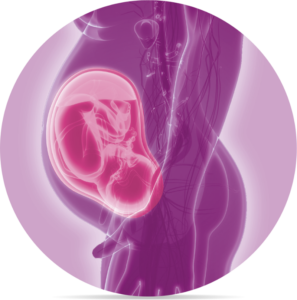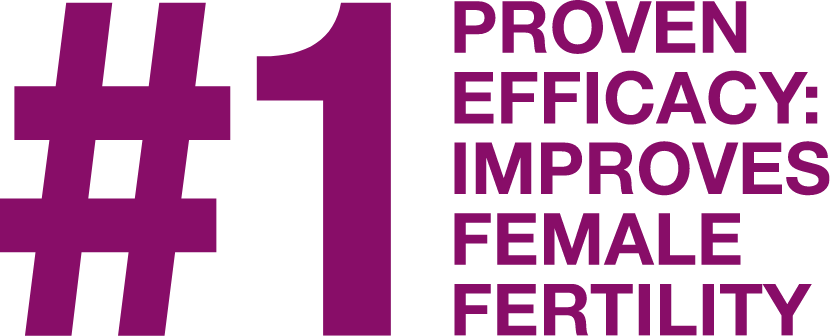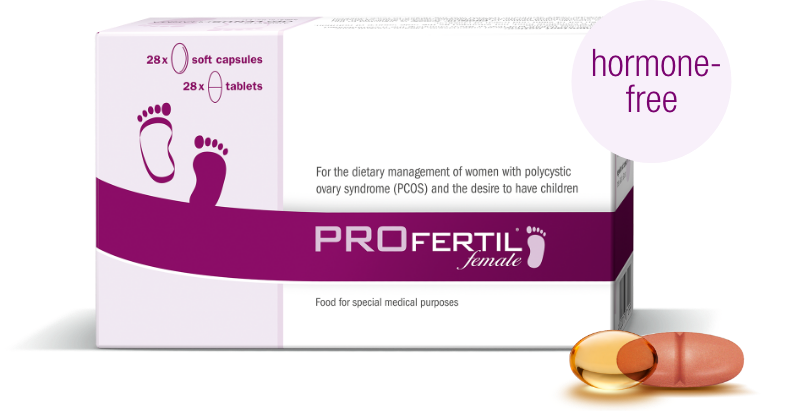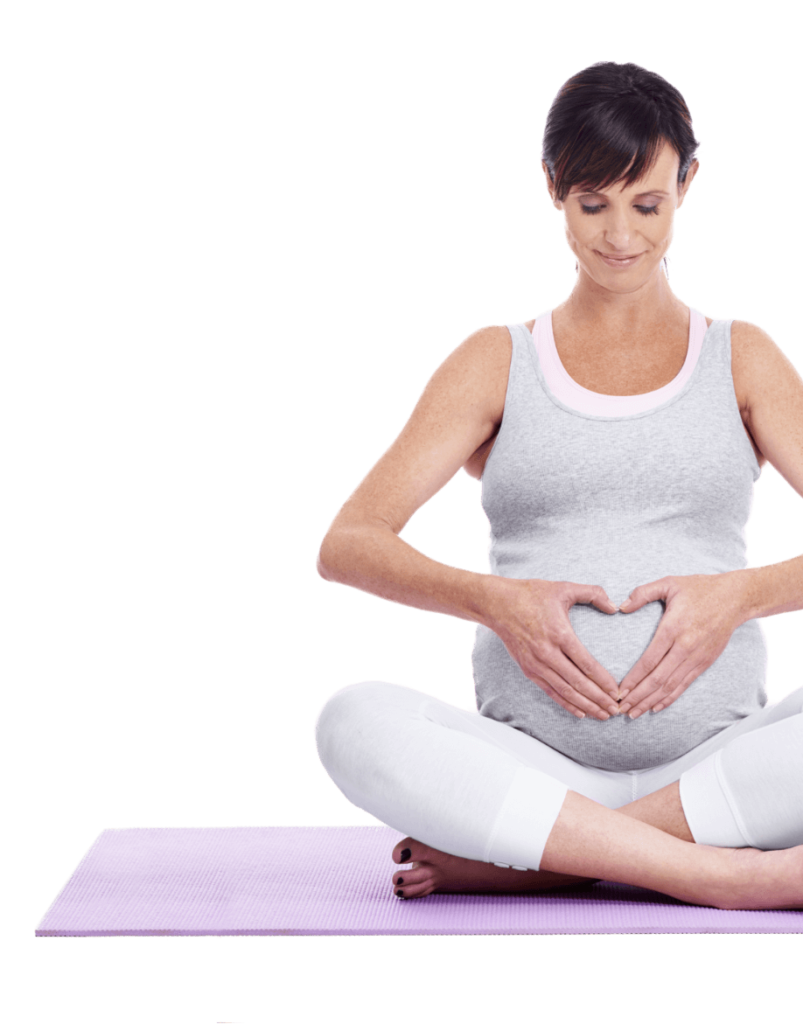When taken during the phase prior to conception (before fertilisation), PROFERTIL® female creates optimal conditions for the health of the child and the expectant mother. In this context, it should be noted that the product should only be taken until pregnancy occurs. Other products, so-called prenatal vitamins, can be used when the pregnancy is confirmed.
With its study-proven micronutrient combination, PROFERTIL® female can contribute to a successful course of pregnancy. With regard to metabolic disorders, the intake of specific nutrients is particularly important, especially for women who are affected by polycystic ovary syndrome (PCOS).

The following pregnancy risks can occur:
- Premature birth (occurs if the child is born before the end of the 37th week of pregnancy)
- Miscarriage (spontaneous abortion)
- Preeclampsia or pregnancy poisoning (in this case, blood pressure is too high and too much protein is excreted via the urine. This affects roughly 1 in 10 woman)
- Neural tube defect in new born children (e.g. foetus with “open back”. This can result in death in the womb in the worst-case scenario.)
What is a high-risk pregnancy?
When there is a risk of miscarriage or malformation of the child according to medical information.
The following factors can be decisive:
Pregnancies over the age of 35 are often classified as high-risk pregnancies. Fertility naturally decreases with age. In this context, the intake of PROFERTIL® female with its study-proven micronutrient combination should be considered.
The risk of trisomy 18 or 21 increases over the age of 35.
Furthermore, the expectant mother’s pre-existing conditions play a role. In addition to high blood pressure, being overweight and metabolic diseases, these also include chronic diseases such as diabetes, asthma or epilepsy. Thyroid dysfunction or previous diseases of the liver, kidney, lung as well as the heart and nervous system can also lead to complications.
Hereditary diseases passed down from the father or mother can also pose a potential risk.
If a previous ectopic pregnancy or miscarriage is known, pregnancy is automatically classified as high-risk.
Normal delivery is made more difficult when the unborn child is in the breech position. This is why the term high-risk pregnancy is also used in this case.
Thanks to prenatal diagnostics (prenatal analysis), it is possible to detect many gene defects at any early stage. The pregnant woman or the future parents decide whether these examinations (e.g. a nuchal translucency measurement by ultrasound to rule out chromosomal changes) should be carried out.
Reduce the risk of gestational diabetes:
Since metabolism changes during pregnancy, also called gestation, blood sugar levels may increase temporarily. Especially in case of obesity (BMI>30) or being overweight (BMI>25), a change in diet to more fresh fruit, vegetables, wholegrain products and fish as well as eggs and pulses can reduce the risk of diabetes and thus the course of pregnancy.
Furthermore, significant weight gain during the nine months can lead to diabetes. Planned weight/diet management is therefore helpful. In this context, PROFERTIL® female not only supports female fertility, but the study-proven micronutrient formulation also creates the best conditions for the unborn child and the expectant mother.
Daily walks as well as swimming and gymnastics also support healthy vital and blood values and thus reduce the risk of a problematic gestation period. Inner balance is brought into equilibrium in combination with yoga, relaxation exercises and perhaps also meditative exercises.
It goes without saying that all prenatal medical check-ups should be used.
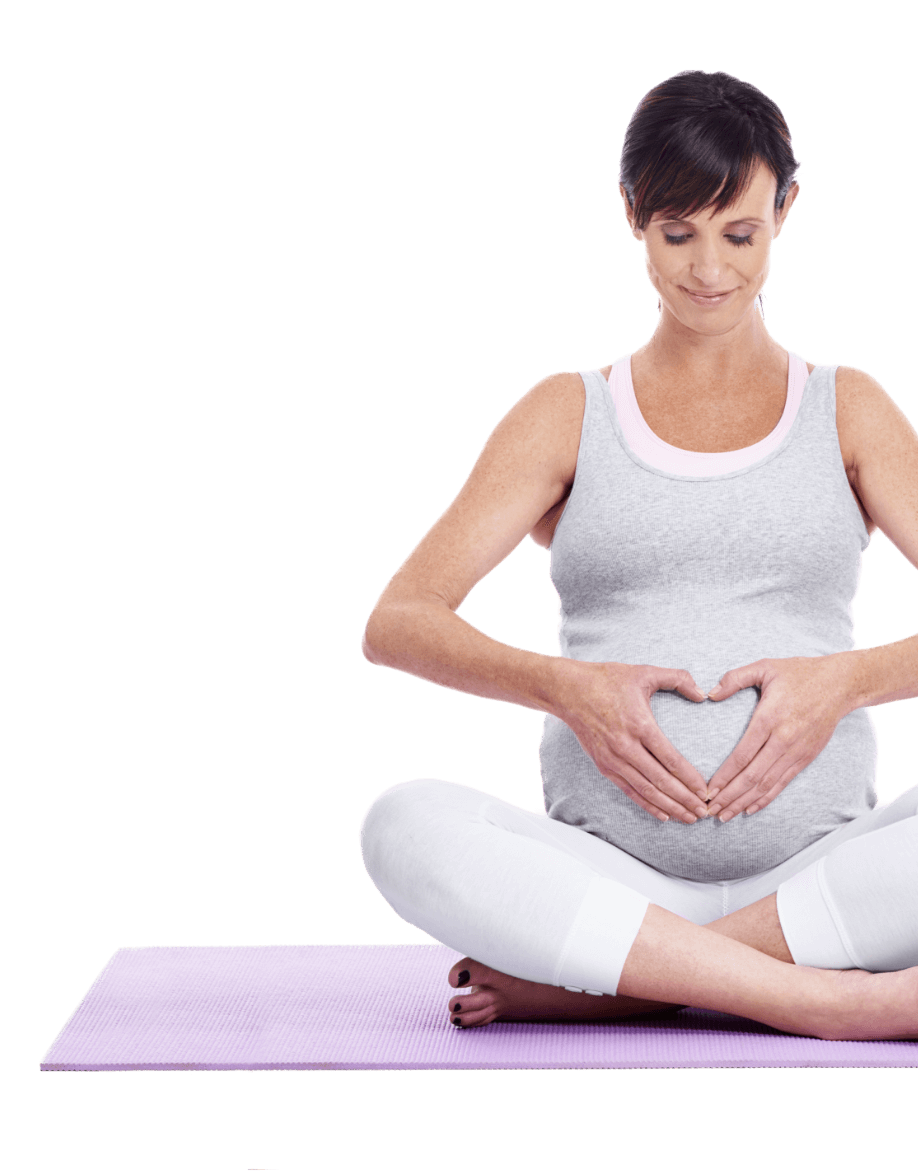
Prenatal care over the age of 30 to minimise risk:
There is a general trend towards later pregnancy over the age of 30 in Europe. 1 in 4 babies born in Europe are born to a woman over the age of 35. It is also perfectly normal to take your time and finish vocational training or studies first. According to experts, this trend towards “late motherhood” will continue and even increase due to the possibilities of modern reproductive medicine. Many women would therefore like to know in time what risks are associated with carrying a boy or girl to term over the age of 30.
With regard to “older women”, check marks are often automatically put on the list of possible risks when completing the mother-child booklet. The physician will thus automatically pay increased attention to certain values and findings. This is an advantage when it comes to reducing pregnancy risks. In this context, the possibilities of modern midwifery, which can prevent serious complications, are also advantageous.
In the context of prenatal care for women over the age of 30, PROFERTIL® female can help to minimise risk thanks to the study-proven micronutrient formulation. Ultimately, PROFERTIL® female demonstrably increases female fertility and also creates the best conditions for the forthcoming pregnancy in the phase prior to conception.
In the context of prenatal care for women over the age of 30, PROFERTIL® female can help to minimise risk thanks to the study-proven micronutrient formulation. Ultimately, PROFERTIL® female demonstrably increases female fertility and also contributes to creating the best conditions for theforthcoming pregnancy in the phase prior to conception.
